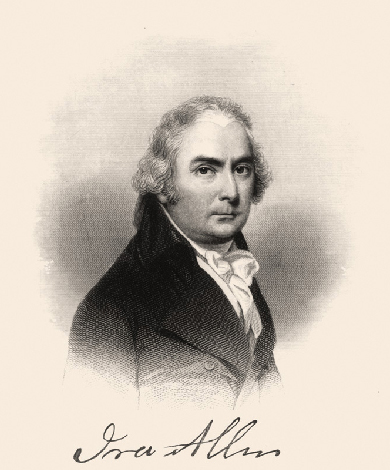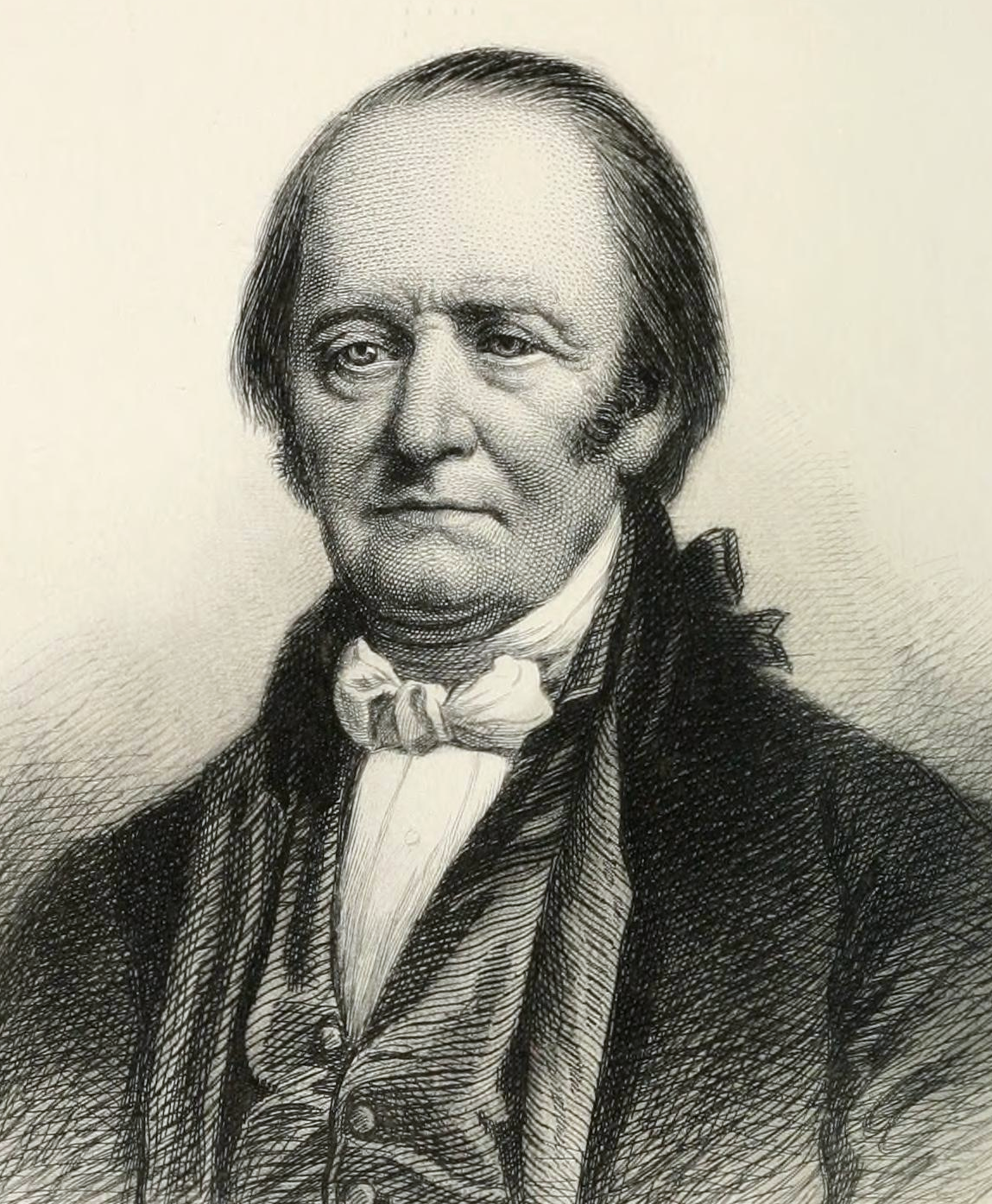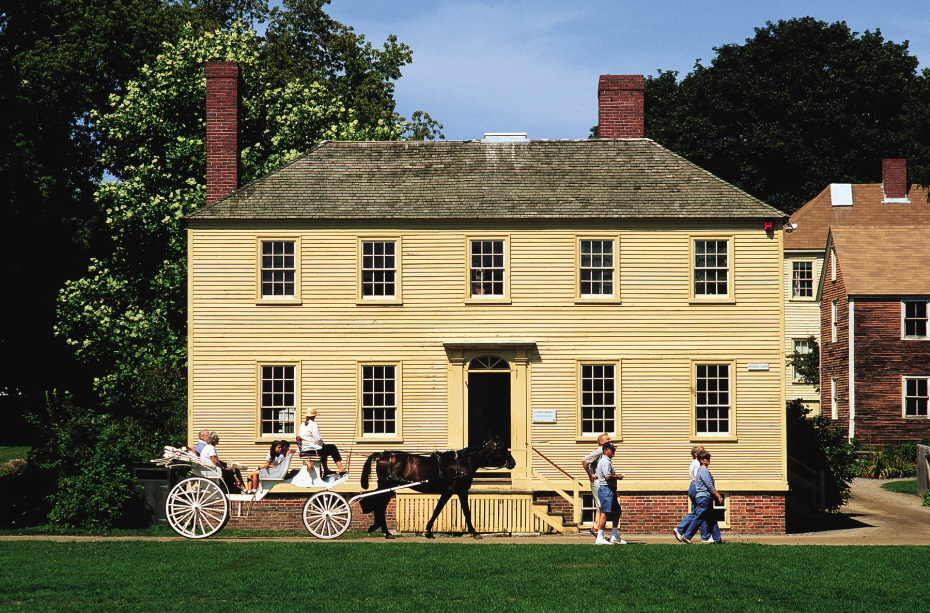|
1781 Vermont Republic Gubernatorial Election
The 1781 Vermont Republic gubernatorial election took place throughout September, and resulted in the re-election of Thomas Chittenden to a one-year term. The Vermont General Assembly met in Charlestown, New Hampshire on October 12. The meeting site was chosen as part of a short-lived effort to create a union of Vermont with 17 Connecticut River Valley towns of New Hampshire. The Vermont House of Representatives appointed a committee to examine the votes of the freemen of Vermont for governor, lieutenant governor, treasurer, and governor's council members. Thomas Chittenden was re-elected governor. The popular vote indicated that no candidate for lieutenant governor had received a majority. In keeping with the Vermont Constitution, the choice fell to the Vermont General Assembly, which chose Elisha Payne, a New Hampshire resident who supported the union of New Hampshire's western towns with Vermont. Ira Allen Ira Allen (April 21, 1751 – January 7, 1814) was one of the ... [...More Info...] [...Related Items...] OR: [Wikipedia] [Google] [Baidu] |
Freeman (Colonial)
During the American colonial period a freeman was a person who was not a slave. The term originated in 12th-century Europe. In the Massachusetts Bay Colony, a man had to be a member of the Church to be a freeman; in neighboring Plymouth Colony a man did not need to be a member of the Church, but he had to be elected to this privilege by the General Court. Being a freeman carried with it the right to vote, and in Plymouth only freemen could vote by 1632. ''Black's Law Dictionary'' (9th edition) defines freeman as follows: 1. A person who possesses and enjoys all the civil and political rights belonging to the people under a free government. 2. A person who is not a slave. 3. Hist. A member of a municipal corporation (a city or a borough) who possesses full civic rights, esp. the right to vote. 4. Hist. A Freehold (law), freeholder. Cf. villein. 5. Hist. An Allodial title, allodial landowner. Cf. vassal. - also written free man. "Freedom" was earned after an allotted time, or af ... [...More Info...] [...Related Items...] OR: [Wikipedia] [Google] [Baidu] |
Vermont Gubernatorial Elections
Vermont () is a U.S. state, state in the New England region of the Northeastern United States. It borders Massachusetts to the south, New Hampshire to the east, New York (state), New York to the west, and the Provinces and territories of Canada, Canadian province of Quebec to the north. According to the most recent U.S. Census estimates, the state has an estimated population of 648,493, making it the List of U.S. states and territories by population, second-least populated of all U.S. states. It is the nation's List of U.S. states and territories by area, sixth smallest state in area. The state's capital of Montpelier, Vermont, Montpelier is the least populous List of capitals in the United States, U.S. state capital. No other U.S. state has a List of largest cities of U.S. states and territories by population, most populous city with fewer residents than Burlington, Vermont, Burlington. Native Americans in the United States, Native Americans have inhabited the area for abou ... [...More Info...] [...Related Items...] OR: [Wikipedia] [Google] [Baidu] |
Ira Allen
Ira Allen (April 21, 1751 – January 7, 1814) was one of the founders of the U.S. state of Vermont and a leader of the Green Mountain Boys during the American colonial period. He was the younger brother of Ethan Allen. Biography Ira Allen was born in Cornwall in the Connecticut Colony (in present-day Litchfield County, Connecticut), the youngest of eight children born to Joseph and Mary Baker Allen. In 1771, Allen went to Vermont (then part of the British colonial Province of New York) with his brother Ethan as a surveyor for the Onion River Land Company. The four Allen brothers established the company in 1772 (dissolved 1785) to purchase lands under the New Hampshire Grants. Ira Allen had an almost central role in the dispute with the Province of New York over conflicting land claims in the region such as by gifting land to men who had committed acts for New Hampshire, and by confiscating loyalist property to finance government. During the American Revolutionary War, Allen ... [...More Info...] [...Related Items...] OR: [Wikipedia] [Google] [Baidu] |
Elisha Payne
Elisha Payne (7 March 1731 – 20 July 1807) was a prominent businessman and political figure in the states of New Hampshire and Vermont following the events of the American Revolution. He is best known for serving as Lieutenant Governor of the Vermont Republic and Chief Justice of the Supreme Court of Vermont. Early life The son of a prominent cleric of the same name, Elisha Payne was born in Canterbury, Connecticut, on March 7, 1731. He graduated from Yale College in 1750, studied law, and attained admission to the bar. In addition, Payne was a partner with his brother-in-law in a successful mercantile business. Career From 1765 to 1768 Payne served in the Connecticut Assembly. In 1774 Payne relocated to Orange, New Hampshire, then called Cardigan, where he practiced law, farmed, and operated a successful saw and gristmill. In addition, he served in the New Hampshire House of Representatives. In 1775 Payne was appointed a lieutenant colonel in the New Hampshire militia ... [...More Info...] [...Related Items...] OR: [Wikipedia] [Google] [Baidu] |
Vermont State Treasurer
The State Treasurer's Office is responsible for several administrative and service duties, in accordance with Vermont Statutes. These include: investing state funds; issuing state bonds; serving as the central bank for state agencies; managing the state's cash balances, check processing and reconciliation; safeguarding and returning unclaimed or abandoned financial property; and administering three major pension plans for public employees. The treasurer is fifth (behind the Lieutenant Governor of Vermont, lieutenant governor, Speaker of the Vermont House of Representatives, speaker of the Vermont House of Representatives, House of Representatives, President pro tempore of the Vermont Senate, president ''pro tempore'' of the Vermont Senate, Senate, and Secretary of State of Vermont, secretary of state, respectively) in the Gubernatorial lines of succession in the United States#Vermont, line of succession to the office of Governor of Vermont. The incumbent is Mike Pieciak who assume ... [...More Info...] [...Related Items...] OR: [Wikipedia] [Google] [Baidu] |
Lieutenant Governor Of Vermont
The lieutenant governor of Vermont is elected for a two-year term and chosen separately from the Governor of Vermont, governor. The Vermont lieutenant governor's main responsibilities include acting as governor when the governor is out of state or incapacitated, presiding over the Vermont Senate, casting tie-breaking votes in the Senate when required, and Gubernatorial lines of succession in the United States#Vermont, acceding to the governorship in case of a vacancy. As a member of the state senate's Committee on Committees, the lieutenant governor plays a role in determining committee assignments for individual senators, as well as selecting committee Chairman, chairs, vice chairs, and Clerk#United States, clerks. The incumbent Lieutenant Governor is John S. Rodgers, a Republican Party (United States), Republican who was first elected in 2024 Vermont lieutenant gubernatorial election, 2024. Mountain rule From the founding of the Vermont Republican Party, Republican Party in the ... [...More Info...] [...Related Items...] OR: [Wikipedia] [Google] [Baidu] |
List Of Governors Of Vermont
The governor of Vermont is the head of government of the U.S. state of Vermont. Since 1994, Vermont is one of only two U.S. states (New Hampshire being the other) that elects governors for two-year terms. Until 1870, Vermont elected its governors for one-year terms. Isaac Tichenor, Jonas Galusha, Erastus Fairbanks, and Richard A. Snelling each served non-consecutive terms, while Thomas Chittenden served non-consecutive terms as governor of the Vermont Republic. Mountain Rule From the founding of the Republican Party in the 1850s until the 1960s, only Republicans won general elections for Vermont's statewide offices. One method that made this possible was the Republican Party's imposition of the "Mountain Rule," an informal mechanism which restricted the pool of candidates. Under the original provisions of the Mountain Rule, one U.S. senator was a resident of the east side of the Green Mountains and one resided on the west side. The expanded version of the rule called for t ... [...More Info...] [...Related Items...] OR: [Wikipedia] [Google] [Baidu] |
Vermont House Of Representatives
The Vermont House of Representatives is the lower house of the Vermont General Assembly, the state legislature of the U.S. state of Vermont. The House comprises 150 members, with each member representing around 4,100 citizens. Representatives are elected to a two-year term without term limits. Vermont had a unicameral legislature until 1836. It added a senate by constitutional amendment. The House meets in Representatives Hall at the Vermont State House in Montpelier. It is the only U.S. state legislature whose debating chamber seating layout comes closer to that of the Westminster-style parliament found elsewhere, being similar to debating chambers in Australian state parliaments. One Town, One Vote From 1777 to 1965, each city/town elected one representative to the Vermont House of Representatives, regardless of the population of the municipality. This changed with the U.S. Supreme Court's 1964 decree of " One Man, One Vote" in '' Reynolds v. Sims'', which affected al ... [...More Info...] [...Related Items...] OR: [Wikipedia] [Google] [Baidu] |
Vermont Republic
The Vermont Republic, officially known at the time as the State of Vermont, was an independent state in New England that existed from January 15, 1777, to March 4, 1791. The state was founded in January 1777, when delegates from 28 towns met and declared independence from the jurisdictions and land claims of the British colonies of Quebec, New Hampshire, and New York. The republic remained in existence for the next fourteen years, albeit without diplomatic recognition from any foreign power. On March 4, 1791, it was admitted into the United States as the State of Vermont, with the constitution and laws of the independent state continuing in effect after admission. The delegates forbade adult slavery within their republic, although the Vermont constitution continued to make allowances for the enslavement of men under the age of 21 and women under the age of 18. Many Vermonters took part in the American Revolution on the side of the Revolution, but the Continental Congress ... [...More Info...] [...Related Items...] OR: [Wikipedia] [Google] [Baidu] |
New Hampshire
New Hampshire ( ) is a U.S. state, state in the New England region of the Northeastern United States. It borders Massachusetts to the south, Vermont to the west, Maine and the Gulf of Maine to the east, and the Canadian province of Quebec to the north. Of the List of states and territories of the United States, 50 U.S. states, New Hampshire is the List of U.S. states and territories by area, seventh-smallest by land area and the List of U.S. states and territories by population, tenth-least populous, with a population of 1,377,529 residents as of the 2020 United States census, 2020 census. Concord, New Hampshire, Concord is the List of capitals in the United States, state capital and Manchester, New Hampshire, Manchester is the List of municipalities in New Hampshire, most populous city. New Hampshire's List of U.S. state mottos, motto, "Live Free or Die", reflects its role in the American Revolutionary War; its state nickname, nickname, "The Granite State", refers to its ext ... [...More Info...] [...Related Items...] OR: [Wikipedia] [Google] [Baidu] |
Connecticut River
The Connecticut River is the longest river in the New England region of the United States, flowing roughly southward for through four states. It rises 300 yards (270 m) south of the U.S. border with Quebec, Canada, and discharges into Long Island Sound between Old Saybrook, Connecticut, Old Saybrook and Old Lyme, Connecticut. Its watershed encompasses , covering parts of five U.S. states and one Canadian province, via 148 tributaries, 38 of which are major rivers. It produces 70% of Long Island Sound's fresh water, discharging at per second. The Connecticut River Valley is home to some of the northeastern United States' most productive farmland, as well as the Hartford–Springfield, Hartford–Springfield Knowledge Corridor, a metropolitan region of approximately two million people surrounding Springfield, Massachusetts, and Hartford, Connecticut. History The word "Connecticut" is a Corruption (linguistics), corruption of the Mohegan word ''quinetucket'' and Nipmuc word ''kw ... [...More Info...] [...Related Items...] OR: [Wikipedia] [Google] [Baidu] |




